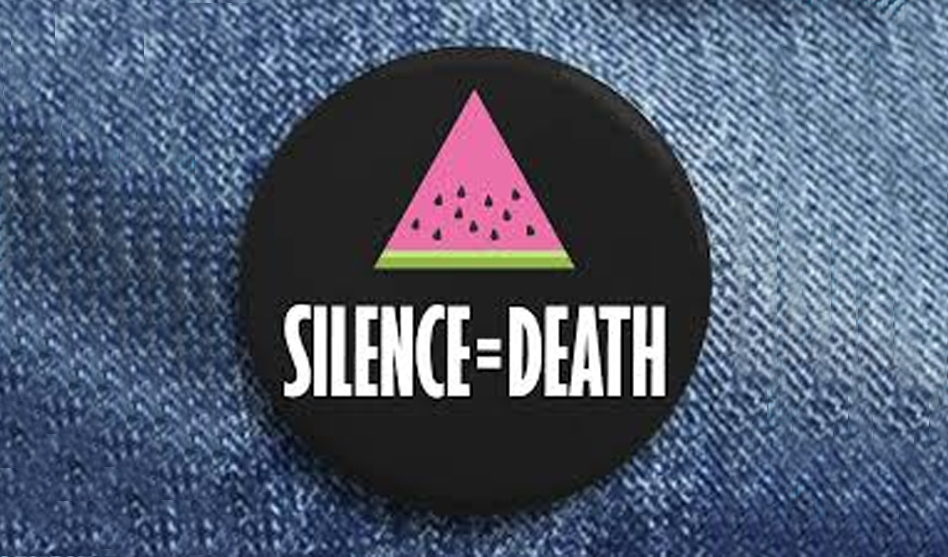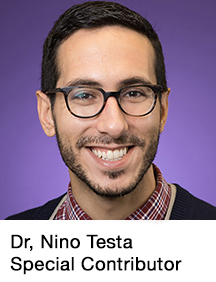
 On July 12, Dallas Voice published an op-ed from contributing columnist Mark Segal critiquing those of us who have opposed LGBTQ complicity in the ongoing genocide in Gaza. In the article, Segal accuses the many queer people who protested Pride parades around the country this June of “seeking to destroy a core part of our movement for equality.” He equated these protesters with the anti-queer forces that regularly attack our community saying that these protesters “are no better than those who wished we didn’t exist.”
On July 12, Dallas Voice published an op-ed from contributing columnist Mark Segal critiquing those of us who have opposed LGBTQ complicity in the ongoing genocide in Gaza. In the article, Segal accuses the many queer people who protested Pride parades around the country this June of “seeking to destroy a core part of our movement for equality.” He equated these protesters with the anti-queer forces that regularly attack our community saying that these protesters “are no better than those who wished we didn’t exist.”
These accusations are offensive and part of an ongoing effort to shame and silence those who oppose the genocide and stand in solidarity with the people of Gaza.
I stood with dozens of other queer people outside of Fair Park on June 2 to protest not the visibility of queer and trans people, not our joy, celebration and community and certainly not our right to exist. What Segal’s op-ed conveniently fails to acknowledge is that Pride festivities around the country are sponsored by corporations complicit in the genocide.
For example, Dallas Pride was sponsored by The Boeing Company and Lockheed Martin, who are supplying Israel with jets, helicopters, missiles, bombs and all manner of supplies being used to kill Palestinian civilians, against international law. Every year, when queer people who believe in life, peace and justice say that we want corporate war profiteers out of Pride, we are told to shut up; business as usual continues.
This year, as these corporations continue to aid in the absolute destruction of Gaza, we stood together and asked our community to oppose them. Queer people around the world did the same. This sort of action is at the heart of Pride.
According to an oral history interview he did with Outwords, Segal was a founder of the Gay Raiders and helped plan disruptive acts of civil disobedience throughout his youth. For someone who takes such great pride in his own participation in the Gay Liberation Front and the Stonewall uprising, Segal has nothing good to say about a new generation of young people who are using their power to demand justice. He seeks to invalidate our protests, accusing us of “not [understanding] the meaning of Stonewall, our history or Pride.” He even calls us a “disgrace” to the memory of Stonewall.
While I don’t presume to speak definitively on the meaning of Stonewall, we might consider the mantra that has graced many of our protest signs, buttons and social media feeds in the last few years: The first Pride was a riot. It was an uprising against state violence. Whether that violence is executed by a city police officer at a gay bar in 1969 or by the Israeli military in 2024, we should be standing in opposition to it.
Segal attempts to change the subject from the genocide itself to the methods used to protest it, claiming, “You can feel strongly about the situation in Gaza but not at the expense of erasing our visibility.” But this is not the only time Segal has attacked anti-genocide protesters in print. On April 29 in the Philadelphia Gay News (of which Segal is the founder and publisher), Segal likewise labels university solidarity encampments as “cowardly” because some people choose to wear masks at them.
It seems that for Segal, and many others, there is no right, acceptable and appropriate way for people to voice their opposition to a genocide that we are paying for.
What is the right way to oppose genocide? At several recent town hall events with my congressional representative, Rep. Marc Veasey (TX-33), strong opposition to Veasey’s pro-genocide policies were met with claims that constituents were being disrespectful. This from a politician who regularly takes campaign money from the defense industry and who, at the same events, argued that Israel’s assault on Gaza was “good for the North Texas economy” because of the many defense jobs it brings to our community.
This summer, Veasey joined Republicans to sanction the International Criminal Court, which seeks to punish Israel for war crimes. He also joined Republicans in a vote to conceal the death toll in Gaza. Most appallingly, he signed a letter to President Biden critiquing any attempt to slow Israel’s massacre.
Meanwhile, doctors and medical professionals from Dallas — our neighbors — who have been serving in Gaza have reported witnessing unspeakable atrocities, including the targeting of civilians in hospitals and designated safe zones. Our brave neighbors — who have been traumatized by the horrors they have seen — have demanded an immediate ceasefire and have asked all of us to do our part to ensure that this happens as quickly as possible.
People in power will always try to police the tone and method of protest rather than take responsibility for their support of unimaginable violence. Make no mistake: These critiques of protest methods are a defense of Israel’s slaughter.
In his Philadelphia Gay News article, Segal also trots out some tried-and-true pinkwashing logic to support the mass death of Palestinians (and Arabs more broadly) by U.S. bombs: “It is time for LGBTQ+ people who support the Palestinian cause to make it clear that they do not support those who literally and publicly have said and acted on their vow of ‘Death to homosexuals.’”
This common argument, that LGBTQ+ people should support or at least overlook the mass death in Gaza because anti-queerness exists there is deeply racist and morally bankrupt. Let’s unpack it.
While I was protesting, we were approached by a group of three conservative TikTok provocateurs who were at Dallas Pride to harass and shame queer people. They were filming some sort of Pride exposé as clickbait for rightwing audiences. They took a break from their fear mongering about drag queens and trans people to harass us for supporting Palestine. Their favorite refrain (which is a conservative talking point you can find all over the internet) was: “They would throw you off of a roof in Gaza.”
Suddenly, these conservatives who were there to mock and shame queer people were using queerness as a justification for the annihilation of Gaza.
We should not accept this racist logic. Anti-queerness is not unique to the Middle East. It exists all over the world, including, as we know all too well, here in Texas, which has become the trans murder capital of the United States. If we truly stand in solidarity with the queer people of Gaza, the most urgent and fundamental way to support their lives is to stop bombing them and their families.
It is our moral obligation as LGBTQ people in the United States to refuse to be used as a justification for the murder of Palestinians. This is why Pride protests were politically urgent actions this June.
I love Pride. I love queer joy. I love queer people. But Pride is not just about parties, glitter and dancing. It’s not just about the ability of affluent gays to “rise to a C-suite” as Segal argues.
It is about building a world of justice for all people and all living beings. As the trans poet and activist Alok once critiqued in a powerful spoken word poem: “White men dance on stolen land [and] call it activism.”
Queer joy and celebration should not come at the expense of Palestinian lives. Pride should not be funded by the people and corporations who are killing Palestinians. It is long past time that every LGBTQ+ person interrogate their relationship to empire, settler colonialism and war. It is long past time that we meet our moral responsibilities as a community to resist genocide.
Corporate representation, visibility politics, and rainbow capitalism are not the means to liberation. Our liberation is tied to the liberation of all those who struggle for freedom.
How we choose to narrate the history of queer activism has enormous consequence for contemporary politics. With respect and gratitude to Segal for the work he has done for the community, narrating the history of Pride as being only about “visibility” diminishes the scope and impact of queer liberation movements.
ACT UP’s powerful imagery reminds us that “Silence = Death.” This year, as people continue to silence opposition to genocide, ACT UP-NY has re-designed its iconic pink triangle as a slice of watermelon, symbolizing its solidarity with the movement for a free Palestine.
There may not be a Lady Gaga song about it, a happy hour dedicated to it or an Employee Resource Group organized around it, but calling for a ceasefire and standing in solidarity with the people of Gaza is something in which all LGBTQ+ people can take Pride, if only we have the courage and moral conviction to do it.
Nino Testa is associate professor of professional practice in the Department of Women & Gender Studies at Texas Christian University. His teaching and research focus on histories of queer and feminist activism, theory and pedagogy. He is a board member of The Dallas Way: An LGBTQ History Project and a volunteer for the Texas Equal Access Fund, Black & Pink and the Cathedral of Hope, United Church of Christ. He has organized with Jewish Voice for Peace-Boston.
